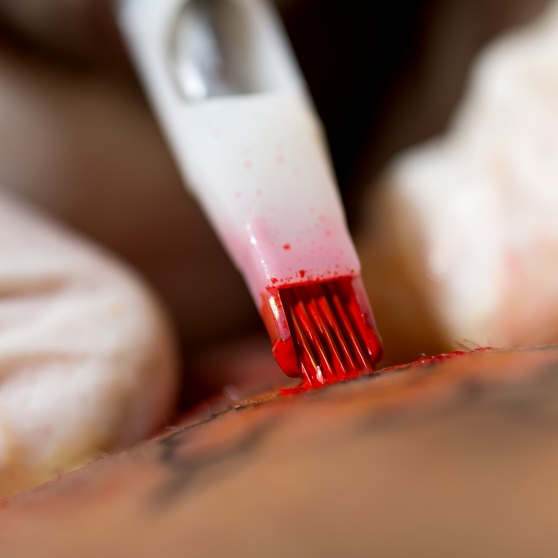Body Art Safety
According to the US Food and Drug Administration (FDA), infections are the most serious risk associated with tattoos. Unsterilized tools — such as the needles or gun — and ink that has been contaminated can lead to infection. However, according to the FDA, it is rare to contract a bloodborne disease from most tattoo parlors today. Your skin may also have a negative reaction to the ink. These reactions may include redness, blisters, weeping wounds, sensitivity to sunlight, pigment loss or permanent scarring.
Reviewed by:
Review Date:
July 14, 2015Citation:
Image courtesy of Nejron | Dreamstime.com Image courtesy of Russinov | Dreamstime.com Image courtesy of Candace Beckwith | Dreamstime.com Image courtesy of Russinov | Dreamstime.com Image courtesy of Algirdas Gelazius | Dreamstime.com Image courtesy of Oleksii Sergieiev | Dreamstime.com Image courtesy of Robert J. \\\"chip\\\" Gatto | Dreamstime.com Image courtesy of Martin Allinger | Dreamstime.com Image courtesy of Michael Krause | Dreamstime.com Villanova University, "About Body Art & Piercing" RxWiki, "Stay Safe When Getting Inked" FDA, "Think Before You Ink: Are Tattoos Safe?"
Last Updated:
July 14, 2015
